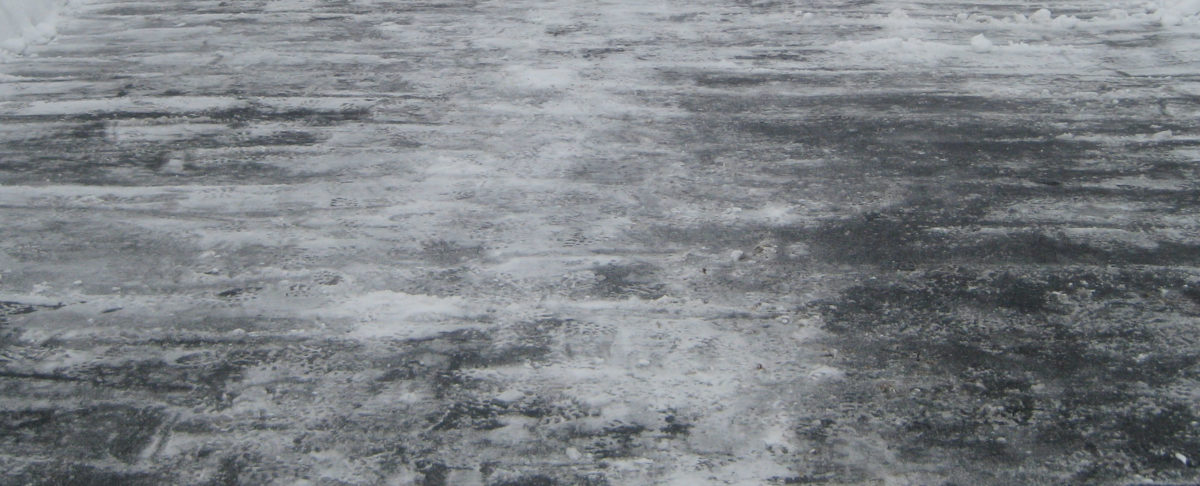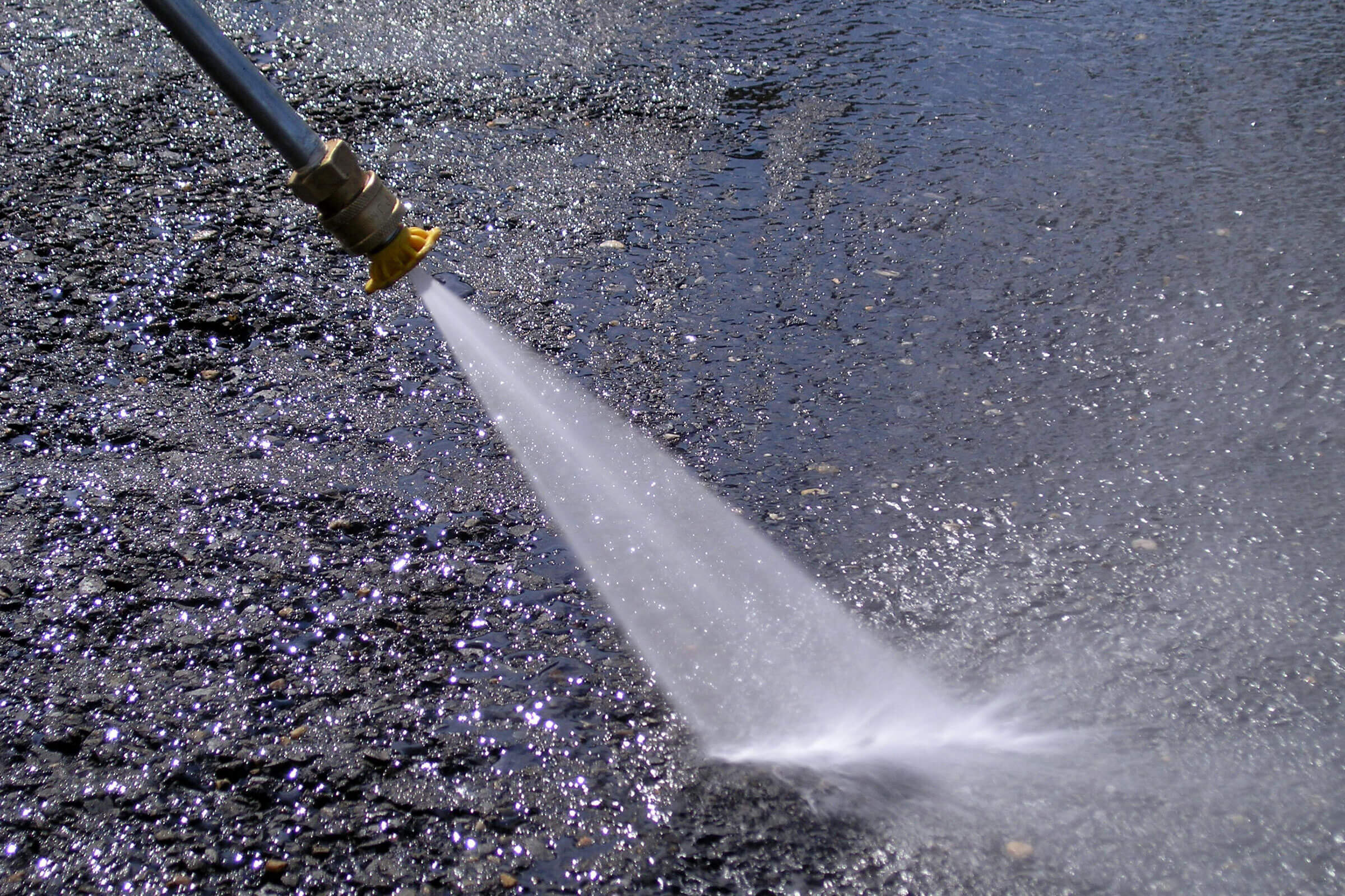It’s almost that time of year again. Most of us are hesitantly putting away our summer shorts and grabbing the good old snow pants as we prepare for winter. Hopefully, this year will be good to us and our driveways. However, there’s no way to tell. That gives us only one option — prepare. We don’t want to leave our asphalt driveways out in the cold, so there are some steps you’ll need to take to preserve their look and lifespan.
You’re probably already starting your winterizing routing, insulating certain areas, and putting weathering strips around windows. So, while you’re hard at work preparing your interior, you might as well start thinking about your exterior. Mainly, your driveway.
Your driveway goes through regular wear and tear throughout the year, but cold and inclement weather presents an even tougher challenge for pavement.
Why You’ll Want to Winterize Your Driveway
It’s no secret that frozen temperatures, ice melting products, and general weathering take a toll on asphalt pavement. Asphalt has many benefits, some of which we went over in a previous article called “The Great Debate: Asphalt vs. Concrete.”
- Asphalt is easy to resurface
- Its dark color speeds up ice melt
- Easy to install
- Salt doesn’t cause as much damage as concrete alternatives
While there are certainly a lot of benefits to having an asphalt driveway in colder climates, they aren’t indestructible. There are a few reasons why you should take some extra care this fall to prepare your asphalt driveway for winter.
Preventing damage like cracks or potholes is simply the best way to save yourself money down the line. While you can fill cracks with hot rubber crack refiller or resurface areas that need attending to, it’s far easier to be proactive than reactive.
Keep your driveway looking pristine. Having a run-down or damaged driveway can negatively impact the value of your home or property. Having a beautiful driveway isn’t just for looks; it also adds to the resale value of your home. Your driveway is an investment, so take care of it.
Avoiding unnecessary repairs is a no-brainer. As we mentioned, failing to winterize your driveway can lead to potholes and cracks, which will eventually need to be repaired. If you want to save yourself time and money, prepare your driveway for winter.
How to Winterize Your Asphalt Driveway
It’s not too cold just yet so you have some time to prepare your driveway for winter. So, how exactly do you get it done? First things first, you should inspect your driveway thoroughly. Before performing any maintenance or winterizing steps — you should make sure that your driveway is cleaned off.
In fact, keeping your driveway relatively clean all year round will show you where problem areas may be forming. Knowing where cracks or damaged areas are before the leaves begin to fall will save you a bit of extra effort. Make a note of these and be on the lookout for spreading cracks or damage because you will definitely want to take care of that before winter.
The best possible preventive measure you can take with your driveway is sealing it for the winter. Sealants are an affordable solution to winter wear and inclement weather.
Sealing Your Driveway
Luckily, sealing your driveway isn’t too expensive and can be done by a non-professional. However, it’s not always recommended. Sealants act as a barrier, bonding to your driveway and preventing any snow or ice from making its way down. You can think of sealants as a kind of shield that protects your driveway from the harmful elements.
Getting a professional’s help with your asphalt driveway sealing is a great way to ensure that it’s done right. While you certainly can do it yourself, you may risk some common missteps that leave your driveway vulnerable during the winter.
If you do plan on trying to seal your driveway yourself, here are some basic steps.
- Buy no-mix asphalt sealer
- Completely clean off your driveway
- Trim any plant life that may be hanging over your driveway
- Tape any surfaces that are adjacent to your asphalt driveway that you don’t want to be sealed
- Starting at your garage or carport and moving down, pour the sealer from one side of the pavement to the other (use a 6-inch wide bead of sealer was you pour)
- Use a driveway squeegee tool to help you spread a thin layer of the sealer down your driveway
- Apply another layer perpendicular to your first so that the coats overlap
Note: Once you begin pouring your sealer, you need to continuously spread it to avoid it from drying out too quickly. Also, the temperature should be a minimum of 60° F.
Other Steps to Winterize Your Driveway
Remember those notes you took about problem areas in your driveway? Well, before winter arrives, you’ll want to take care of that straight away. If you notice any cracking or potholes, make sure you call a professional to get those taken care of before winter arrives. If you don’t, you risk these smaller areas spiraling out of control, causing severe damage to your driveway. Eventually, this will cause you a ton in repairs or possibly even replacement down the road.
Compared with concrete, salt doesn’t do nearly as much damage to asphalt. However, it will still wear it down over time. Salt or other chemicals aren’t typically the best option for your driveway. So, if you did happen to miss out on winterizing your driveway — try not to play catch up with harmful deicers that could do more harm than good.
Take Care of Your Asphalt Driveway Today
Winter is coming quick, and before you know it, those small problems you see in your driveway today are going to become big problems tomorrow. If after you’ve cleaned off your driveway and given it a thorough inspection, you notice cracks, potholes, or other damages — start taking care of them quickly.
Need a hand? We’ve been laying asphalt and concrete since 1954. If you’re looking for premier paving services in the Twin Cities or surrounding suburbs, we’ve got you covered. Contact us today to learn more about how we can help prepare your driveway for the coming months.





